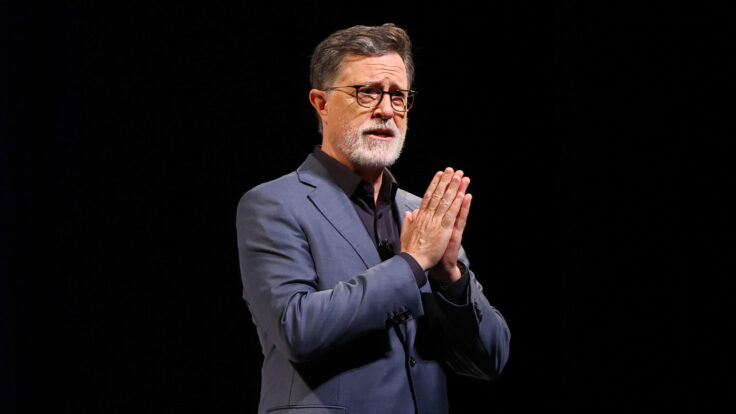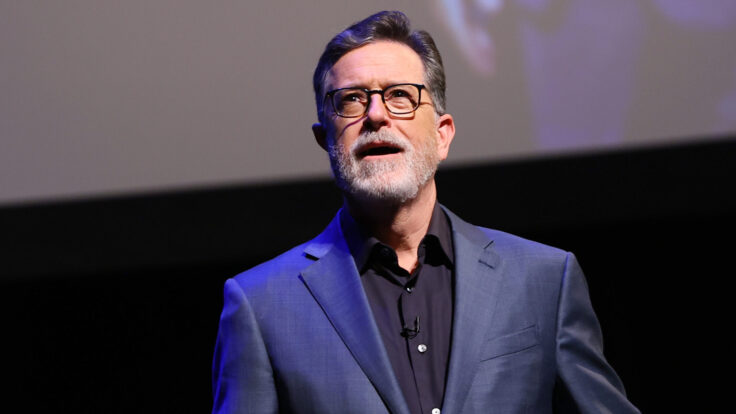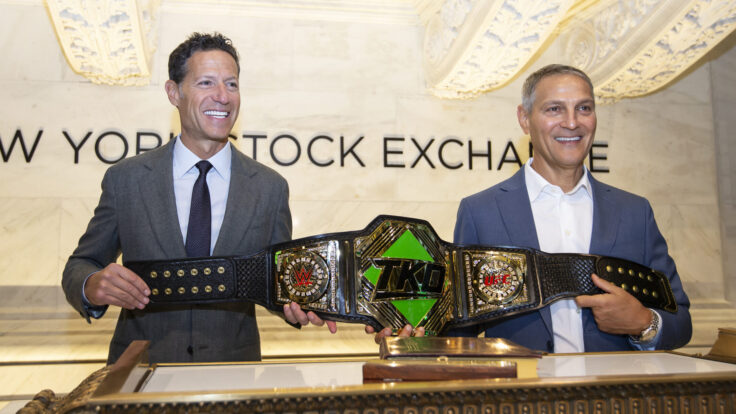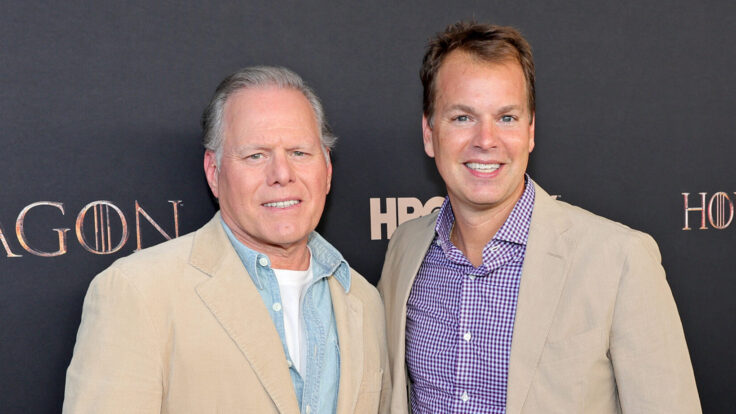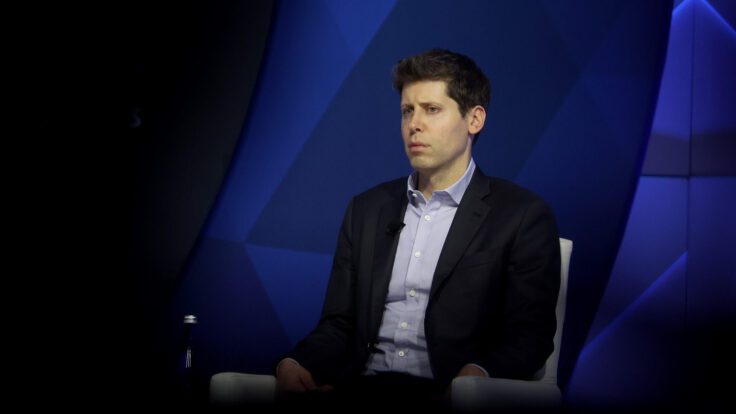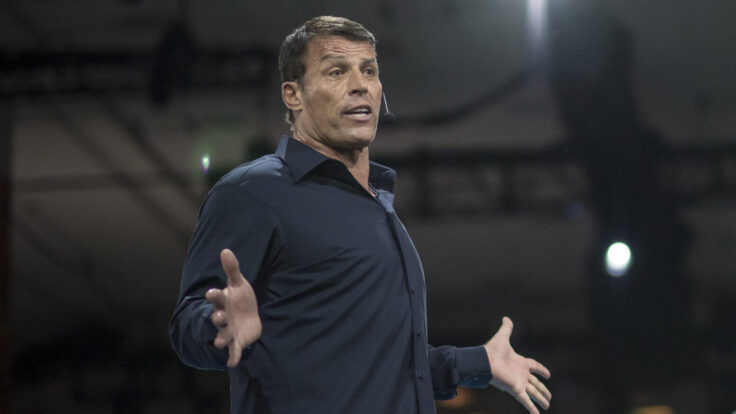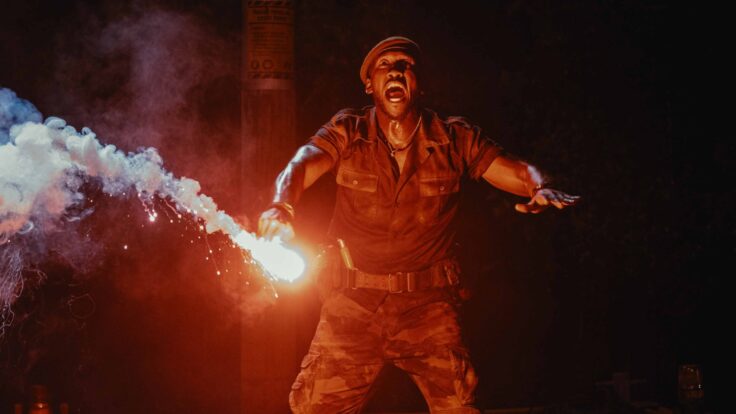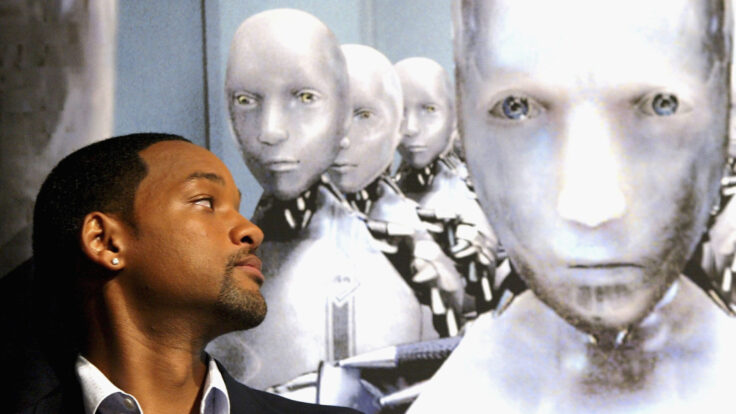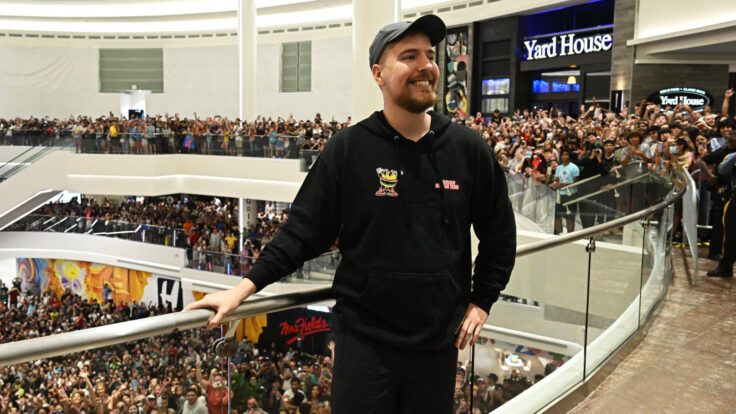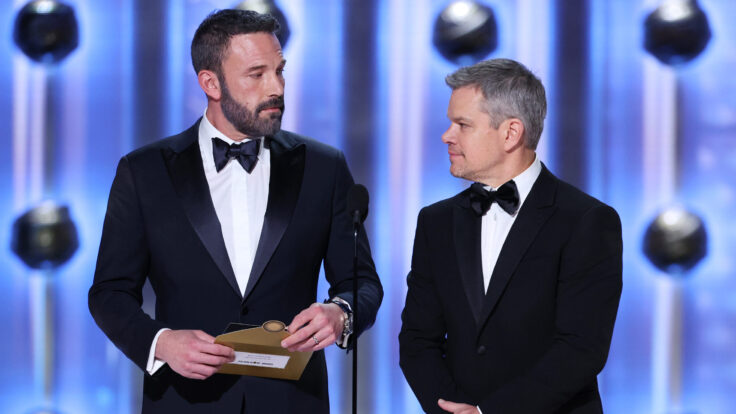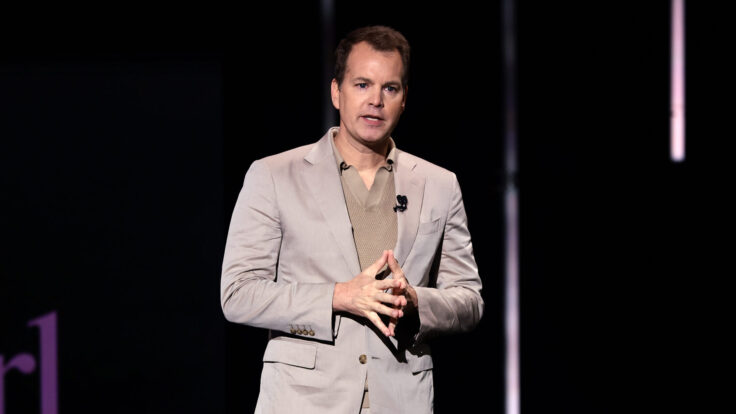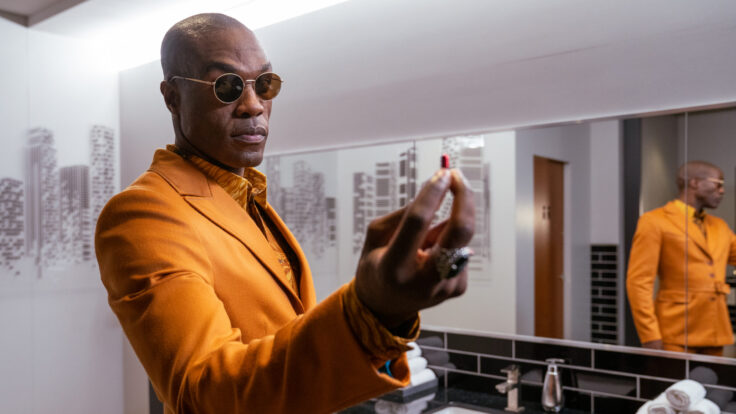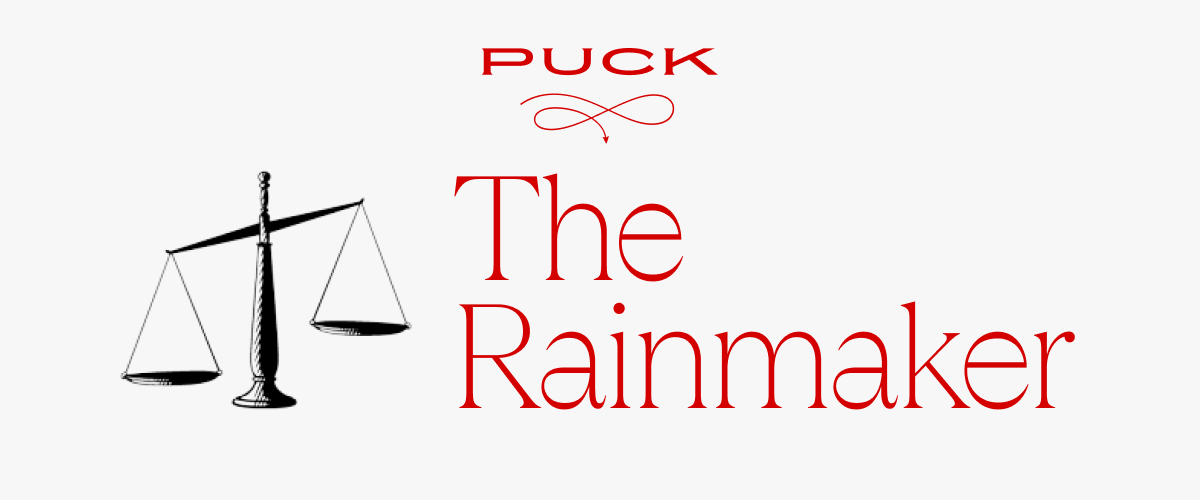 |
|
Happy Monday, I’m Eriq Gardner.
|
|
Welcome back to The Rainmaker, a private email about money, power, fame, and most of all, the law.
In this week’s edition, my report on how the head-spinning deal between the PGA Tour and LIV Golf probably leads to nothing but more legal trouble. Also: Lionel Messi, Daymond John, Disney, Jack Daniel’s, Ingo Rademacher, Byron Allen, and of course, A.I. (Was this email forwarded to you? Click this link to subscribe.)
But first…
|
|
|
- Is this the week that Fox News and Tucker Carlson end up in court? The network has been sending warning letters to its former star about breaching his contract by posting videos on Twitter. That might be posturing, but I could see Carlson seeking a declaratory judgment that he’s doing nothing wrong. Maybe he even tests New York’s “Broadcast Employees Freedom to Work Act,” which prohibits broadcasters from restraining those who work in the industry from signing non-competes.
- Disney has settled a bunch of copyright termination cases involving various comic book heirs who tried to reclaim the rights to Incredible Hulk, the Mighty Thor, and other characters. That’s an outcome I saw coming. Still unresolved, however, is a dispute with Spider-Man co-creator Steve Ditko.
- Speaking of Disney, the company scored a big victory against Ingo Rademacher, the former General Hospital star who refused to take a Covid vaccine and then claimed his firing was religious discrimination. A judge ruled that the actor didn’t cooperate sufficiently with Disney’s process meant to evaluate a request for an accommodation. Read the opinion, which also refuses to extend actionable discrimination to political beliefs. And expect an appeal.
- Byron Allen, owner of The Weather Channel and other networks, delivered summary judgment arguments in a racial discrimination suit against McDonald’s for allegedly making his company go through an African American ad agency and its “miniscule ad budget.” The fast food chain responded that the claim of a caste system for Black companies is not true. Read the papers here.
And before we get to my piece on the LIV-PGA mess, some thoughts on the case everyone is talking about… |
| The Trump Show Legal Calendar |
|
| As I delved into the 49-page indictment, I have to admit almost losing my head. There’s no way Donald Trump could run for the U.S. presidency again in light of this: charges of willful retention of national defense information, conspiracy to obstruct justice, and making false statements. But then I remembered it’s Trump, who is still contending with a criminal case in New York, not to mention whatever comes of grand juries in Washington, D.C. and Georgia.
How can a judge possibly manage a trial schedule given so many concurrent investigations and the political backdrop? An editor asked me a few days ago, and I shrugged my shoulders. Hell if I know. Does anyone? It’s not like this has ever happened before in American legal history.
Nonetheless, as prosecutors step into a Miami federal court on Tuesday, perhaps we may catch a glimpse of what’s ahead. Maybe special counsel Jack Smith’s team fields a question from Judge Aileen Cannon (assuming she doesn’t recuse herself because of an appearance of impartiality) regarding what’s happening up in D.C., where an investigation continues over January 6. If not tomorrow, then soon enough.
Trump’s legal team will inevitably seek to delay the trial as long as possible, probably past Nov. 5, 2024, which will undoubtedly give rise to pre-trial skirmishes. I’m particularly intrigued by how Trump might endeavor to undermine the admissibility of evidence provided by insiders, notably his former lawyer Evan Corcoran. A prior judge ruled that Corcoran could not invoke attorney-client privilege, as the advice was in furtherance of a crime.
One additional twist worth noting: The Southern District of Florida has been at the forefront of federal courts in terms of providing live audio of proceedings—for the last few years, at least. But, of course, this is a politically-charged case involving classified secrets, so it’s hard to predict whether this show will be streamed. |
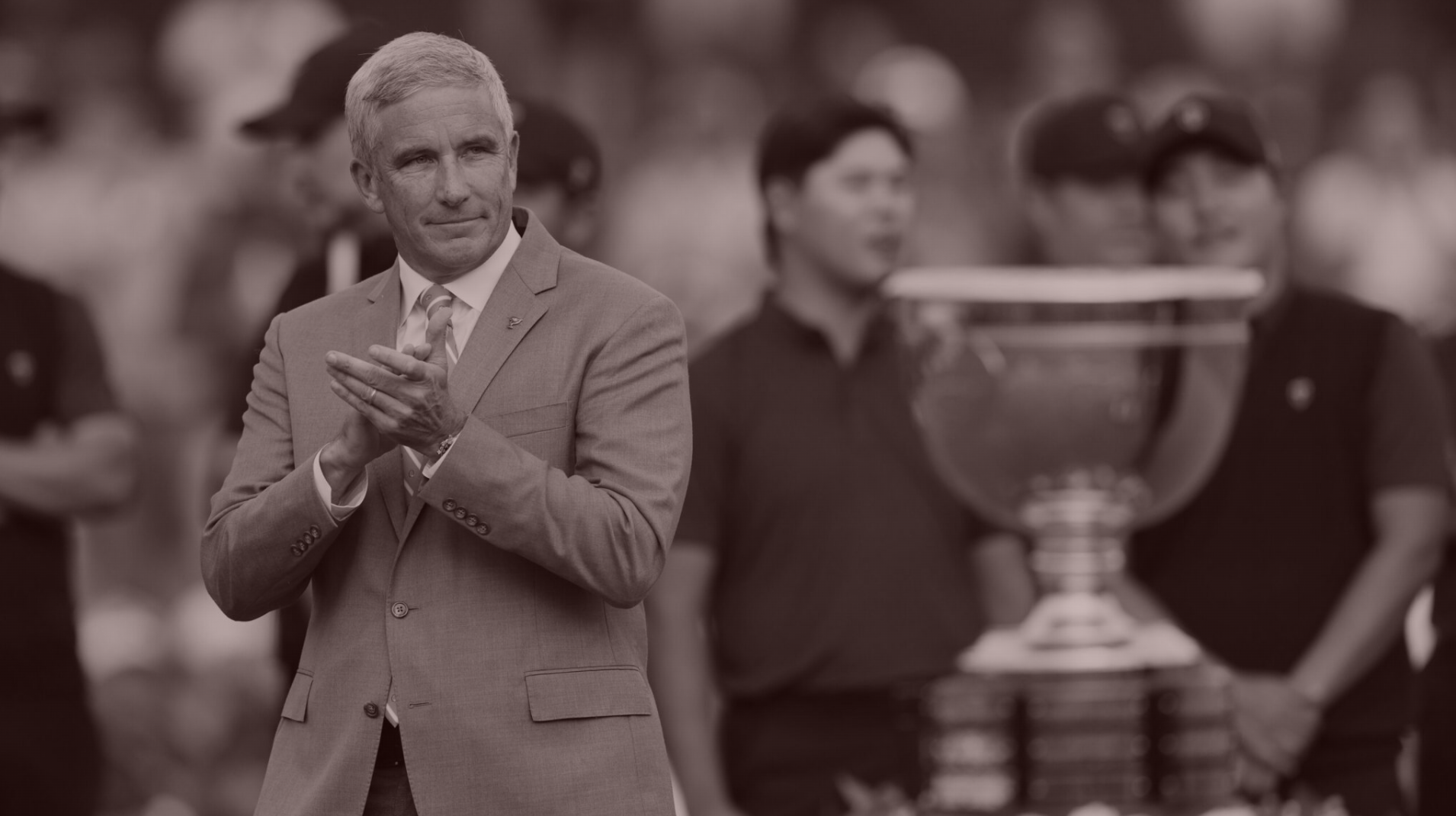 |
| The Saudi-PGA M&A Legal Hellscape |
| The so-called merger is already facing trouble with the board, pushback from players, and scrutiny in Washington. Next come the regulators—and the inevitable lawsuits. |
|
|
|
| Nearly a week has passed since the shocking announcement of some sort of merger between the PGA Tour and LIV Golf, but the astonishment at this hastily arranged union has not diminished. After all, Golf fans spent a year hearing high-minded big talk about how the august American organization would never allow the sports-washing Saudis to impose their presence on the greens, even if they had all the money in the world, and presented a legit existential threat. Now, fans are still buzzing with disbelief after PGA commissioner Jay Monahan—who cajoled players into rejecting lucrative nine-figure offers from the kingdom—suddenly capitulated. The sense of betrayal extends to the lawyers, too: Privately, some attorneys who worked on the litigation between the two organizations say they only found out about this deal seconds before it was announced.
I can’t recall ever witnessing such a high level of disorientation regarding a business development. It’s not solely due to the geopolitical animosity, after the Saudi-funded upstart LIV lured stars like Phil Mickelson and Brooks Koepka, leading the PGA to issue suspensions and fines and resulting in a major antitrust lawsuit and intense lobbying of Congress. The bewilderment also arises from what lies ahead: How the hell do they expect to gain necessary approvals for this marriage? And if the deal falls through, what happens then?
Astoundingly, as Bloomberg first reported, there were no antitrust lawyers involved in these deal talks. Instead, a small circle handled matters. (Wachtell partner Ed Herlihy, the PGA Tour’s chairman and a M&A legend, participated and kept negotiations tightly guarded.) But when the group began to fear a leak, they put out word of the deal’s framework, possibly prematurely. After all, the PGA’s executive leaders still need to clear the combination of the PGA Tour, LIV Golf, and the DP World Tour (the European league) with regulators, and also possibly with C.F.I.U.S., given the infusion of Saudi capital—especially after Monahan described the deal as an opportunity to “take the competitor off the board.” Incredibly, the press release was subsequently amended to remove the term “merger,” something that obviously should have been figured out beforehand.
But there’s no going back. Now mired in an M&A sand trap of their own making, the golf executives may attempt to chip sideways by rebranding this as a joint venture, hoping to minimize scrutiny from the Biden administration. (The PGA plans to preserve its status as a tax-exempt non-profit, but will contribute its lucrative media deals to a new commercial, for-profit entity. On Monday, a Senate committee opened a review of this arrangement.)
But the Department of Justice is already investigating professional golf, and however this deal is framed, it will surely become an international spectacle that allows governments worldwide to demand information and then take a swing at it. If ever there was a test of whether money can overcome a dire legal predicament, this is it. The Kingdom of Saudi Arabia will surely spend big to defend legal and political attacks. It might not matter. Given the headwinds, it’s really hard to figure how this deal goes through. |
|
|
| There are numerous deal points that need clarification, such as the fate of players who previously defected to LIV and the compensation model for professional golfers going forward. Even basic questions, such as whether LIV will continue as a separate league, possibly filling the autumn schedule in a teams format, remains undecided. Once these details are ironed out, however, the new plan will still need to be approved by the PGA Tour’s policy board, which consists of 11 members, including independent directors such as Herlihty, ex-AT&T chairman Randall Stephenson, and venture capitalist Mary Meeker. It also includes five players, most intriguingly the game’s best golfer, Rory McIlroy, who reportedly rejected a $500 million offer from the Saudis and now wonders if he will be the “sacrificial lamb” of the merger. (McIlroy denied that he was offered that crazy deal from LIV.)
Assuming, however, that the PGA-LIV alliance makes it past the policy board, there could be a queue of individuals willing to take legal action against the new arrangement. For starters, every competing golfer likely has standing to sue. Unlike many other sports, golfers lack a union that collectively bargains wages and working conditions. Consequently, the PGA won’t be able to take advantage of any labor exemption from antitrust laws.
In fact, some star golfers have already made a compelling case that the PGA Tour is an “entrenched monopolist,” wielding significant anti-competitive power. A complaint from Mickelson and others last year stated, “Members of the Tour receive a substantially lower percentage of the Tour’s revenues than professional athletes in other major sports.” Naturally, golfers will expect the economic situation to improve with the infusion of Saudi money (expected to be in the billions of dollars). If that fails to happen, the courts will be busy.
In any case, the D.O.J. will look very hard at the deal, too, and the smart money is on a lawsuit either to block the PGA-LIV deal or to at least impose certain conditions on it. Government regulators will probably be inflamed by this “merger to monopoly”—those are curse words in competition circles—plus the opportunity to stand up to a monopsony, meaning a market controlled by a single buyer. As demonstrated by the Biden Administration’s successful intervention to prevent Penguin Random House’s acquisition of Simon & Schuster, these regulators are particularly attentive to tight labor markets dominated by few employers. While few will sympathize with golfers in the same way as downtrodden steelworkers in Pittsburgh, Assistant Attorney General Jonathan Kanter will likely seize this opportunity to shape the law for others. Any attempt by the PGA to present this deal as a joint venture may not carry much weight either. Just look at how the government opposed the “Northeast Alliance” between American Airlines and JetBlue.
Naturally, the PGA will defend the deal as beneficial for consumers. The league will likely argue in court that golf fans desire to see the best players competing against each other, and that without resolution, the PGA Tour might not have even survived a draining war that had depleted its cash reserves. As Monahan reportedly explained to employees, “We cannot compete with a foreign government with unlimited money.” A spokesman for the league, repositioning the competition, further added, “With the end of the fractured landscape in the world of men’s professional golf, the PGA Tour has never been a more valuable property… This transaction will make professional golf more competitive with other professional sports and sports leagues.” |
|
|
| Upon the PGA-LIV announcement, some comparisons were drawn to past mergers in sports, particularly the National Football League’s tie-up with the American Football League in 1966. While there are certain similarities, the differences are significant and instructive.
Similar to the Saudis, the AFL owners once desired to join the older, more prestigious NFL, which had kept them out. Led by Al Davis, AFL owners responded by introducing innovations to football (such as more colorful uniforms, an exciting passing-oriented style of play, two-point conversions, etcetera) and competing for notable players like Joe Namath and Pete Gogolak. These endeavors led to television deals, including the ones brokered with NBC and ABC by famous football commentator Al Michaels’ father. Eventually, these incremental successes led to secret merger talks, resulting in a landmark agreement that gave birth to significant expansion, the Super Bowl, and other developments.
While there are parallels to the current situation, the 1966 merger may not have materialized without Congressional intervention. In fact, the NFL successfully lobbied federal lawmakers to give it an exemption from antitrust laws. The AFL merger was blessed as a rider to a tax bill, and championed by Louisiana’s congressional delegation, which secured a commitment from football executives to add two more teams. (One became the New Orleans Saints.) Even then, certain aspects of the arrangement might not have survived but for the certification of a football players’ union a couple years later. That bolstered the legality of the league’s compensation system as well as its annual draft of collegiate athletes. Notably, when the National Basketball Association failed to convince Congress in the early 1970s to grant a similar antitrust exemption for a merger with the American Basketball Association, players filed suit and eventually achieved a settlement that paved the way for free agency.
Of course, it’s hard to see Chuck Schumer and Kevin McCarthy now leading the charge to give an antitrust exemption to the Saudis, who will forever be blamed for their connection to 9/11 and the murder of journalist and dissident Jamal Khashoggi. And even were Donald Trump to return to office and appoint D.O.J. officials who were lenient towards the golf overlords, driven by Trump’s desire to host PGA tournaments at his properties, it wouldn’t deter litigation from others. Golf simply is not set up like other sports, and a Saudi-influenced monopoly is uniquely positioned to take a huge club to its face.
So what happens if the deal falls apart? I can imagine several possibilities, from the Saudis walking away to a complete collapse of professional golf. More likely, there’s some middle ground where big money tournaments still get played but without some overarching governing body. But that’s a discussion for the back nine. This intrigue is just starting. |
|
|
| Not everyone is succumbing to Saudi money. Another significant development in international sports came this past week when soccer superstar Lionel Messi snubbed a reported $1.5 billion offer from Al-Hilal in Saudi Arabia and signed up instead with Major League Soccer club Inter Miami that involved a transcendent revenue sharing deal with Apple TV+, which streams MLS games. Interestingly, the last time Messi was poised to play a game in Miami, it triggered a notable antitrust lawsuit. And guess what? That very case is just about to knock on the Supreme Court’s door.
Five years ago, Relevant Sports Group, owned by Miami Dolphins owner Stephen Ross, entered into a partnership with La Liga in Spain. As part of the collaboration, a plan was set for Barcelona, then featuring Messi, to face off against Girona in an official game played in Miami. But, allegedly, FIFA thwarted the plan by issuing a policy forbidding its members, including U.S. Soccer, from sanctioning any in-season matches held outside the participating teams’ home territories.
Initially, a federal judge in New York dismissed an antitrust complaint, as Relevant failed to establish an agreement between FIFA, U.S. Soccer, and club teams. However, in March, the Second Circuit Court of Appeals reversed the judge’s decision, reviving the case.
Recent filings indicate that U.S. Soccer now intends to take the matter to the Supreme Court. Led by Gregory Garre at Latham & Watkins, the country’s top soccer association plans to present the question of whether an allegation that a league issued an anticompetitive rule can plausibly be considered concerted action by a league’s members.
If the Supreme Court accepts the case, it would follow up on the 2010 decision in American Needle, when the justices unanimously ruled that NFL teams were capable of conspiring with each other. Now, the focus is on scrutinizing policies of sports leagues and the relationships of their members. While it’s uncertain whether the justices will choose to hear the case (personally, I would probably bet on a rejection), given the heavyweight sponsorship of this coming cert petition, and its potential implications for other sports organizations, including the PGA Tour, it is certainly a development worth keeping a close eye on. |
|
|
- One final note on the sports antitrust front: Major League Baseball defends its antitrust exemption at a Second Circuit hearing on Wednesday morning. I reviewed that situation last year. You can watch the hearing live.
- Also ahead this week is the most important hearing to date in the Sam Bankman-Fried criminal case. On Thursday, his attorneys will be arguing those motions to dismiss. Meanwhile, down in D.C., S.B.F.’s rivals at Binance will take on the Securities and Exchange Commission after the agency brought a civil suit last week. A crucial hearing will consider an S.E.C. bid to freeze assets, which obviously would have a huge impact on the crypto sector.
- I’m also paying attention this week to Montana, where 16 young activists are arguing at trial that the state’s support of fossil fuels violates its constitution.
- Get ready for more trademark claims over what’s in movies and TV shows thanks to Jack Daniel’s win, this past week, in a Supreme Court case over a dog toy that mimicked the brand’s whiskey bottle. In the opinion (read here), the justices attempt to narrowly focus on “source identification,” but it still adds up to more burdensome litigation as cases explore how trademarks are functioning within entertainment.
- Finally, two new defamation cases to obsess over:
1) This is the first suit I’m aware of by a Shark Tank judge against a contestant. Read Daymond John’s complaint against the founder of the “Bubba’s Q” brand here. He’s asking for a restraining order to stop the guy from giving media interviews about their relationship!
2) A suit over alleged lies by ChatGPT. The plaintiff is Mark Walters, a Georgia radio host, who says that when the chatbot was asked to summarize a different case up in Washington, it falsely responded that Walters was being accused of embezzling funds from the Second Amendment Foundation. Walters is now looking to hold OpenAI responsible for the smear. Read more.
Leave descriptions of what’s happening in courts to the professionals. Like me. Until next week, Eriq |
|
|
|
| FOUR STORIES WE'RE TALKING ABOUT |
|
|
|
|
|
 |
|
|
|
Need help? Review our FAQs
page or contact
us for assistance. For brand partnerships, email ads@puck.news.
|
|
|
|
Puck is published by Heat Media LLC. 227 W 17th St New York, NY 10011.
|
|
|
|




